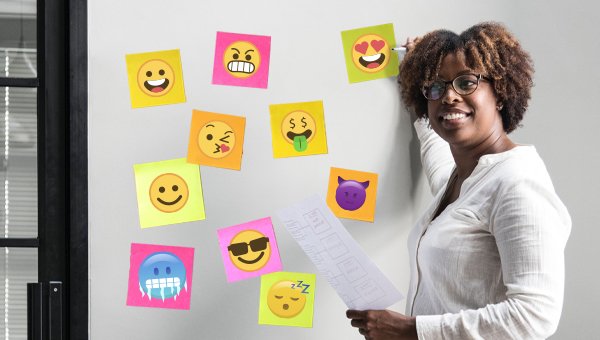Business
These Emoji Could Get You Fired: Why South Africans Need to Think Twice Before Hitting Send

Why a 🍑, 👍 or ❤️ might be putting your job at risk in South Africa
What’s in an emoji? In South Africa’s modern workplace, apparently a lot. That tiny thumbs-up you just sent in your team WhatsApp group? It could be seen as passive-aggressive. That peach emoji you used for a fruit pun? It might be read as sexual innuendo. And that red heart you fired off as a show of support? Some think it’s a little too intimate for professional boundaries.
As emoji use becomes more common in work chats, it’s also landing South Africans in hot water, sometimes with serious consequences.
When emojis become evidence
South Africa has already seen a high-profile example of emojis playing a role in disciplinary proceedings. Judge President Selby Mbenenge, a senior figure in the Eastern Cape High Court, is currently under investigation for sexual harassment. A key part of the evidence? WhatsApp messages and emojis allegedly sent to his secretary, Andiswa Mengo. The fallout could lead to impeachment.
And it’s not just judges. Labour lawyer Aslam Moolla says messages with emojis are increasingly being used as evidence in CCMA hearings, disciplinary meetings and even courtrooms.
“People think a wink or heart is harmless. But when it lands in front of a tribunal, that meaning can shift, drastically,” he explains.
One emoji, many meanings
Dr Zakeera Docrat, a forensic linguist and expert in language and the law, has been sounding the alarm. Speaking during a recent webinar, she warned that emojis can drastically change the tone of a message—and they’re far from universally understood.
“A peach emoji might be about fruit. Or it might not,” she said.
“It’s not just the symbol, it’s the context, the relationship between people, and the culture they operate in.”
Even the innocent thumbs-up has come under scrutiny. In some environments, it’s a friendly “noted.” In others, especially among younger colleagues or multicultural teams, it can feel dismissive or sarcastic.
South Africa’s diverse workforce makes these misunderstandings more common. Docrat notes that employees often communicate across different languages, religions, and cultural backgrounds, meaning intent can get lost in translation, fast.
Hearts, winks, and boundaries
Hearts, especially red ones, might be the most controversial of the lot.
“Some webinar participants debated whether sending a red heart to a colleague is too romantic,” Docrat recalled. “Some suggested replacing it with a black or white heart, but even then, it depends on how it’s received.”
The winking face is another trap. It might seem like a light-hearted joke, but depending on the dynamic between sender and receiver, it could be seen as flirtatious or mocking.
Workplace policies need to catch up
In Docrat’s view, emojis aren’t just a cute addition to workplace banter, they’re a risk that needs regulating.
She recommends that every workplace, especially in sectors like law, government, and finance, include emoji usage in their official communication policies.
“If you’re unsure whether it’s appropriate, just don’t send it. Write ‘thanks’ or ‘noted’ instead,” she advised.
Some industries, like marketing or design, may have more relaxed emoji norms. But for others, sticking to plain words might be safer.
Social media’s mixed reaction
Online, South Africans are split. On Twitter/X, some users joked that “the real crime is still using the eggplant emoji in 2025.” Others said the idea of getting disciplined over a peach emoji is “a sign we’ve lost all chill.”
But many agreed that clarity matters.
“We use emojis like punctuation marks. But they can cause real damage if misunderstood,” one user posted.
“Especially if there’s a power imbalance. Your boss sending a wink is not the same as your colleague doing it.”
Final takeaway: Emojis aren’t universal
So what’s the bottom line? Emojis might be fun, but they’re far from foolproof.
In South Africa’s complex and culturally rich workplaces, where messages are exchanged across racial, religious, gender, and linguistic lines, it’s crucial to choose your symbols carefully. The wrong emoji, sent at the wrong time, could cost you your reputation, or even your job.
Quick Do’s and Don’ts for South African Work Chats
Do:
-
Stick to clear, professional language
-
Use words like “thank you” and “noted”
-
Follow your company’s digital communication policy
Don’t:
-
Send emojis that could have double meanings (🍑, 🍆, 💉)
-
Assume everyone understands the same emoji the same way
-
Mix emojis with serious or formal communication
{Source: BusinessTech}
Follow Joburg ETC on Facebook, Twitter , TikTok and Instagram
For more News in Johannesburg, visit joburgetc.com



























